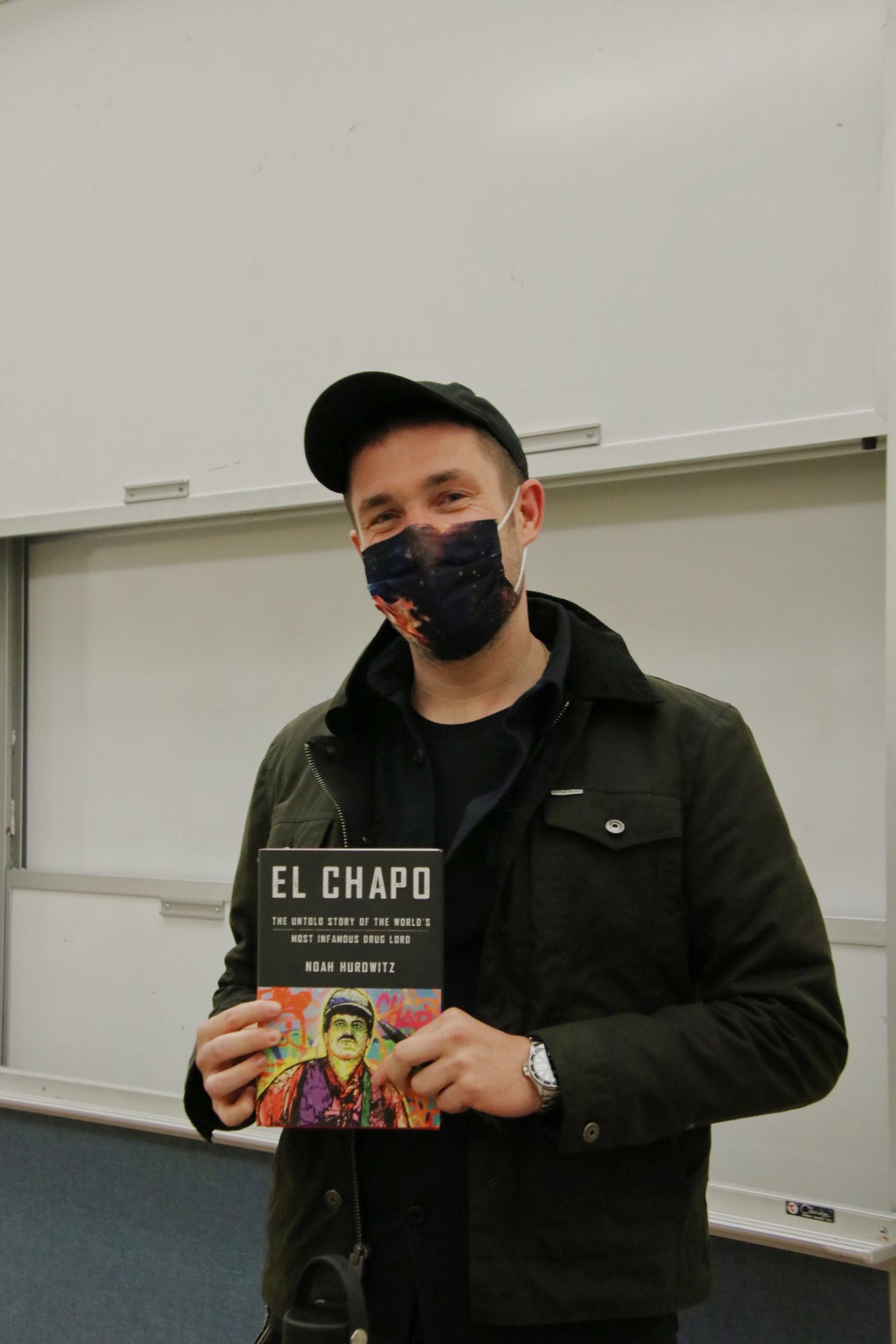Recently, I had the opportunity to read the first book of USM alumni Noah Hurowitz, El Chapo: The untold story of the world’s most infamous drug lord, and needless to say it was an adventure. Hurowitz is a journalist based in New York City and this nonfiction piece was inspired by his time covering the trial of El Chapo for Rolling Stone. The book is an all encompassing journey of the rise and fall of Joaquín Archivaldo “El Chapo” Guzmán Loera, his associates, his enemies, and the drug trade.
The hands-on mentality in which Hurowitz wrote El Chapo leads to interesting interviews and paints a unique account of the events that took place surrounding El Chapo, his exploits, and the Mexican drug trade. Reading about first hand accounts gives the story weight and dimension and makes you feel as if you are there at the interviews with Hurowitz.
Hurowitz goes back to the beginning, where all good stories start, establishing the foundation on which the drug trade really gained traction in Mexico and the origin of a boy from La Tuna. This boy would later become one of the world’s most infamous drug lords, the notorious “El Chapo.” As the story progresses through time Hurowitz not only gives a record of El Chapo, the protagonist/antagonist of the book depending on your own perspective, but shines a light on the other big players in the drug trade as well.
By the end of the book there’s a whole cast of characters that feel fictionalized, yet are as real as you and me. Most dead or incarcerated, some alive and at large, the lives of these men and women connected to El Chapo and the Mexican drug trade feel as though they could have been in a movie. A sentiment that you find out El Chapo himself shared, near the end of the book Hurowitz talks about how El Chapo wanted his life to hit the big screen, even writing a manuscript of his escapades. The film never came to fruition but the story of El Chapo was heard around the world nonetheless.
Throughout the book corruption is the name of the game over the decades that El Chapo and his associates and enemies reigned in Mexico. Corruption wasn’t anything new by the time El Chapo came to power and it is still existent in the Mexican social, political, and economic structures today. The drug trade in Mexico wouldn’t have been able to function at the rate in which it did and does without corruption on both sides of the law. I found it refreshing that Hurowitz didn’t clearly define the good guys and the bad guys in the book, but pointed out corruption for what it was. This included the members of the drug trade from the top to the bottom of the food chain, but also law enforcement and politicians. However, corruption wasn’t always a choice for these people, it was a plague.
Hurowitz has created a road map for the web of connections and events over decades in the Mexican drug trade. In one book you get an overarching story of El Chapo and the drug trade, but you also learn the stories of different people that may have been pushed to the wayside or forgotten to history and other adaptations of El Chapo’s story. I am walking away from this book feeling like an expert on El Chapo and the events surrounding him which is a testament to the talent of Hurowitz as a writer.
A tale of loyalties and betrayals, escapes and captures, failures and triumphs, El Chapo: The untold story of the world’s most infamous drug lord is an all inclusive book melding together the stories of the many that make up the Mexican drug trade and those trying to combat it. Though people thought that the drug trade would mellow after the imprisonment of El Chapo the drug trade machine in Mexico and the U.S. continues to chug along and the story of El Chapo serves as a curse for some and a legend for others.

